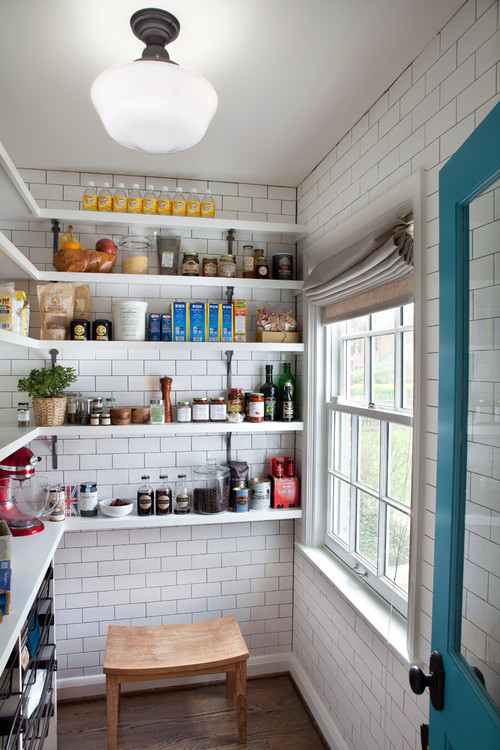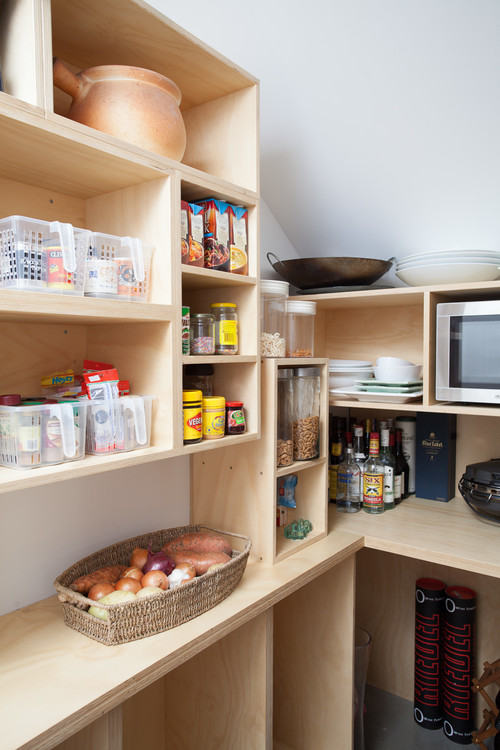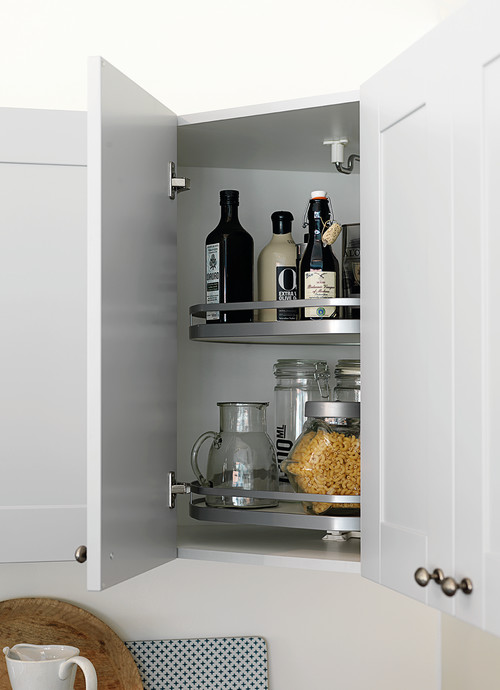8 Steps Towards An Organized Pantry
It seems to be one of those unwritten laws that no matter the size of your pantry, it will never seem quite big enough to neatly hold everything you want to put there. And even when you've put in the effort to do a thorough pantry clear-out (even decanting the pasta and cereal into labeled containers), it inevitably devolves into its former Cheerio- and dry pasta-strewn state.
In real life, having a photo-ready pantry probably doesn't top your to-do list — but a smartly organized one can help mornings and mealtimes run more smoothly, which benefits the whole household. Read on for simple strategies to keep the pantry chaos reined in, no fussy labels required. Kick things off with a clean sweep. Clearing out the old, stale and unloved snack foods and staples is an important first step — but think of this as just the beginning. To help your pantry stay this way, you'll need to follow through with smart sorting, user-friendly organizing and regularly scheduled maintenance.
Smart Sorting Divide and conquer with categories. Keeping snacks and ingredients organized by category is such a big help in the pantry; if this is the only change you make, you'll still get big benefits. Designate a shelf (or portion of a shelf) to each category, and you'll be able to find what you need faster. It's as simple as that. The following categories are a good place to start, but sort in a way that makes sense for how you use your pantry: ○ Dried pasta, rice and grains ○ Oils and vinegars ○ Canned goods ○ Baking and sweet ingredients ○ Savory ingredients and spices ○ Children's snacks and lunchbox items ○ Coffee and teas Related: Kitchen Storage Solutions for Every Category
User-Friendly Organizing Corral snacks and ingredients with easy-to-grab bins. Avoid toppling piles and make finding what you need easier by gathering frequently used items in easy-to-grab bins. The bins don't need to be fancy, but they should be lightweight and easy to clean in case of spills (plastic works well).
Keep spice storage one-deep. Whether you store spices in a drawer or on wall-mounted shelves, aim to keep those little jars one-deep so that you can see what's where at a glance. This serves another purpose too: When you can see what you have, you're a lot less likely to buy duplicates — and having fewer duplicates means less clutter. Related: Unique Solutions for Stashing Spices
Increase access with Lazy Susans. These handy turntables make reaching items at the back of the cupboard (without knocking everything over in the process) a breeze. Put a single Lazy Susan or a stacking unit (as shown here) in the part of your pantry that really drives you nuts, and see what a difference it makes. Related: Shop Clutter-Busting Kitchen Gadgets
Put walls to work with vertical storage. The one-deep rule for spice storage works well for other items too: Give it a try on a blank pantry wall where there isn't enough room for standard-depth shelves. Frequently used items (like olive oil, favorite seasonings and broths) are good bets for storing on wall shelves like the ones shown here.
Know when to decant (and when to let it go). Smart items to decant include ingredients bought in the bulk bins, as well as items that you want to keep fresh for longer. And if you have problems with pests like ants or moths, it's safest to keep pantry staples like sugar and flour in airtight jars. But decanting just for looks? Do it if you like to. Otherwise, keep things simple and save your energy.
Last But Not Least: Regularly Scheduled Maintenance Make mini clear-outs part of your routine. While planning what to have for dinner in the week ahead, it's natural to take a peek in the pantry to check if you have the necessary ingredients. Take advantage of this by using the time to do a quick clearing out of used-up and stale items, and to straighten up the shelves. —By Laura Gaskill







